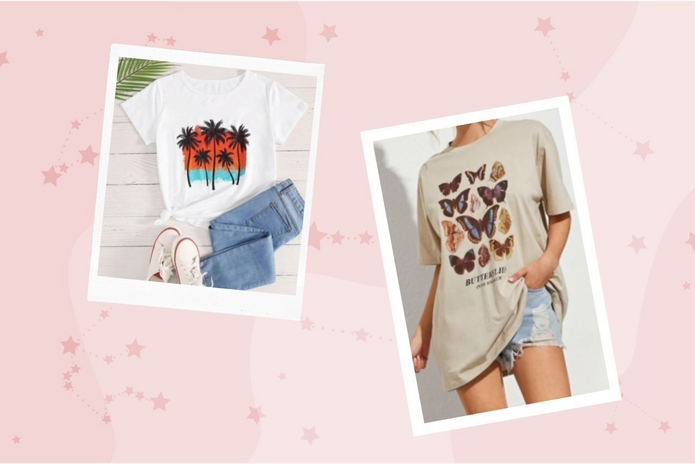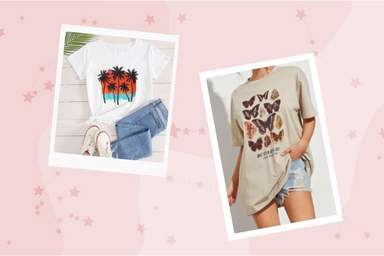If you have ever ordered clothes from fast fashion companies such as Romwe or Shein, you’ll know that the majority of the companies’ products are made poorly; whether it be loose and poorly stitched clothing, see-through fabric, or both. A few months ago, I boycotted fast fashion altogether, but not just because of the lower quality of the clothing I received.
These companies tend to be hush-hush when it comes to addressing what goes on behind the scenes. How are their clothes so ridiculously cheap? Why do the products I purchase off of Romwe have Shein’s tags on them? Here is everything about Shein and Romwe that just rubs me the wrong way.
Secretive Ownership and Sources
Both companies originate in China, with Chris Xu founding Shein in 2008 and April Xie founding Romwe in 2009. However, after hours of trying to get a grasp on the backgrounds of these companies, I came across different claims and conspiracies revolving around the identities of their owners. For example, some sources claimed that both are owned by Yang Jianxin, one of China’s elite.
Not only are the companies’ backgrounds fuzzy, but they are secretive about the sources of their products as well. Romwe’s response to the question, “Where are your products from?” on their ‘Help’ page is simply:
“At the moment, ROMWE have five warehouses located in California, New Jersey, China, Dubai and Belgium.
Products will be sent from one of these warehouses according to the stock availability as well as the principle of proximity.”
Disregarding the ridiculous typo in their first sentence, Romwe’s vague response failed to address where their products are made prior to being brought to the distribution warehouses mentioned. Romwe and Shein are relatively quiet about the treatment of their workers as well, but we’ll get back to that later.
Antisemetic and Islamophobic Products
In July, Shein went under fire for selling swastika necklaces, and was subsequently accused of promoting antisemitism. They publicly apologized on Instagram, stating that the necklace’s charm was a Buddhist swastika rather than a Nazi one, but that they had “no excuse”, as they did not take into consideration the negative impact it would leave on their audience.
To be fair, the Buddhist and Nazi swastikas are presented differently, as the antisemetic one falls at a slant and Buddhim’s lies flat. Upon first glance, though, the necklace can be deeply upsetting to those unaware of the religious significance.
The swastika wasn’t Shein’s first run in with a religious misunderstanding. Earlier on, Muslim prayer mats were being sold as decorative carpets. This, alone, is understandably offensive; a sacred mat being sold for people to walk on is practically the highest form of disrespect.
To make matters worse, the “rugs” donned mihrabs, which are niches in the walls of mosques that represent the direction in which Muslims are meant to pray. Some mats also included the Kaaba, a symbol representative of the location of Mecca, the birthplace of Islam. Again, Shein apologized on Instagram for their inconsideration.
Scamming Customers
After a brief scroll on Shein’s website, “Plus Tartan Pleated Skirt” caught my eye. It is a simple pleated skirt with a blue-and-white plaid design, however, it is advertised at $14.00. The cost is in the pricier range in comparison to the rest of their skirts, which usually vary from 5 to 11 dollars. For the life of me, I cannot determine what makes this skirt any more valuable than the rest of them. On Romwe, “Tartan Mini Pleated Skirt” is advertised with the same photo as the plus-sized one on Shein, despite not being a plus-sized product. It is being sold for $11.95.
This can be found among a lot of other products between the two sites, like “1pc Solid Desktop Humidifier”, which is on Romwe for $5.95 and Shein for $6.00. The most significant price difference I could find was Shein’s $29.00 “SHEIN Lace Top Split Side Pleated Prom Dress” selling on Romwe for $24.95.
Despite the blatant scamming of Shein’s customers, it isn’t addressed on either website and was scarcely mentioned in the articles I could find.
The Workplace
A common rumor surrounding fast fashion is one regarding child labor and the mistreatment of workers. On Shein’s ‘Social Responsibility’ page, it is “guaranteed” that forced labor is not used, that the workplaces are monitored and are safe environments, and that workers are treated respectfully and provided living wages and benefits.
Although they claim this, it seems almost too good to be true–how can Shein sell their products for so little and still manage to sufficiently pay their workers? Also on the ‘Social Responsibility’ page, Shein affirms,
“We strictly abide by child labor laws in each of the countries that we operate in. Neither we nor any of our partners are allowed to hire underage children.”
What they don’t address, though, is how the child labor laws vary by country. Shein has warehouses in the US, China, Europe, and Dubai, with each country having different ages corresponding to the minimum age for work eligibility.
Romwe’s ‘Social Responsibility’ page says the same thing as well. Both companies claim that any of their partners caught profiting off of child labor will be terminated, but I find it difficult to trust the word of businesses who scam their customers and profit off of religious appropriation. That is my personal opinion, so take what you want from the information.
Environmental Impact
In general, fast fashion has left a greater negative impact on the environment than a positive one. You can’t order anything off of Romwe or Shein without interacting with plastic at some point. Every package arrives in a plastic bag, which is also surrounded by another plastic bag. Checking the tags of two shirts I ordered from Shein, both are made of 70% polyester, 25% cotton and 5% spandex.
Polyester and spandex are both synthetic fabrics containing plastic fibers. The plastic in the bags and clothes will one day end up in the ocean and break down into microplastics, which are eaten by sea life and are detrimental to both marine health as well as ours, as it will pass through the food chain and into our mouths.
Shein’s ‘Social Responsibility’ page addresses fashion’s negative impact on our planet, and lists the steps they’ve taken to help reduce it. Romwe’s does not mention the environment at all.
Despite everything stated above, it is completely valid for you to continue to shop from fast fashion companies! They provide affordable and fashionable clothing, which is a need for one too many struggling college students. Honestly, if Shein and Romwe are being truthful about their work environment and their efforts towards helping the environment, I may continue to shop there in the future.



